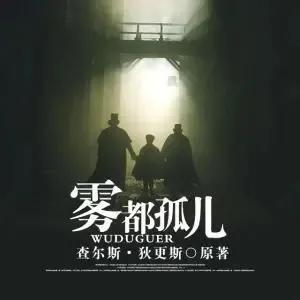In 1836, at the age of 25, Dickens wrote Orphans of the Mist, exposing the darkness and hypocrisy of social places such as relief centers, police stations, and churches by depicting the miserable lives of poor children at the bottom of society. Marx once said that this was Dickens's first great social novel, and Dickens was worshipped by later generations as a beacon to guide people back to laughter and benevolence.

Synopsis
The protagonist, Oliver Twester, was born in a workhouse, and his mother died as soon as he was born, leaving a keepsake, but being smuggled and sold by the greedy midwife. Oliver grew up starving and bullied, and fled to London alone due to the abuse of the coffin shop owner's wife, the parish deacon Bomber, and others, and unfortunately, as soon as he arrived, he was tricked into entering the thief's cave.
The leader of the gang of thieves, Fagin, is neither soft nor hard to make Oliver a pickpocket. Oliver fell into the thief's cave several times, was arrested by the police and nearly executed, was forced to participate in the theft and tried to report that his master was wounded by a gun, and was abandoned in a stinky ditch on the way to escape. Unfortunate things always haunt Oliver, but Oliver is lucky, and in several dangerous situations, he meets the kind gentleman Brownlow (who is his father's best friend) to make his life first revealed, and the kind Mrs. Merry and Miss Ruth (who is Oliver's aunt). When Munchs (half-brother) is in cahoots with the Bumbles in an attempt to destroy the only evidence that proves Oliver's identity, he is overheard by Nancy (the most proud apprentice of the thief Fagin).
Seeing this, Nancy sympathizes with Oliver's plight and, at the cost of her own life, secretly finds Miss Ruth and reports it all to her. In the end, the truth comes out, the bad guys are punished as they deserve, and Oliver is adopted by Brownlow, ending his miserable childhood.
True evil and hypocrisy
Although the novel ends with a situation in which good and evil are rewarded with great joy, the suffering experience of the protagonist Oliver from birth is even more thought-provoking.
In this tribulation, the author divides the forces of evil into two factions, one is true evil, representative figures such as Fagin, Sykes, etc., they are a gang of thieves who do nothing evil, specializing in stealing and robbing for a living, and even killing people; the other is the fake "gentlemen" in the workhouse represented by Bumble, who are morally upright, under the guise of charity, withholding relief money, abusing children, and seeking private interests.
Hypocrisy is deceptive and pretentious, not easily detected, and easily mistaken for "goodness and justice." Hypocrisy is more terrible and more harmful than true evil.
If it weren't for the workhouse midwife who had forgotten her righteousness, perhaps little Oliver would have been able to return to his father's side without having to go through these calamities, and his father would not have died elsewhere. If the workhouses and churches do good deeds sincerely and do not withhold money, then more children will be treated kindly, without starvation, scolding, and beaten, and will not be forced at a young age to become a tool for the capitalists to make money, to be cured of their illnesses, rather than to let them lose their lives.
Oliver is lucky, the author's life for him is the basis for the reversal of the ending, his kindness is the seed of his light, but there are thousands of orphans like Oliver, without a legendary life, even if they are pure in nature, they are still suffering persecution, and the darkness of real society is still the mainstream of that era. This is exactly what the author Dickens wants to criticize.
About the Author
Dickens, one of Britain's greatest novelists, was born into a poor Family in England, his father was a naval clerk, and at the age of 10 he was forced to work as a child laborer in a debtor's prison, with little formal education, and was self-taught. He is particularly good at depicting the life encounters of "small people" at the bottom of society, and his works profoundly reflect the complex social reality in Britain at that time, and make outstanding contributions to the development and development of British critical realist literature. His masterpieces include "Orphans of The Mist", "The Old Antique Shop", "Dong Bei Father and Son", "David Copperfield", "Difficult Times", "A Tale of Two Cities", "Great Prospects" and so on.